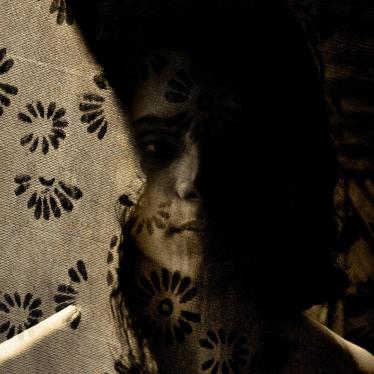(Dhaka, December 23, 2016) – Bangladesh’s steps in recent years to recognize hijras as a third legal gender are leading to further abuses due to widespread prejudice and lack of clear rights-based procedures, Human Rights Watch said in a report released today. In recent years the government of Bangladesh has taken important steps toward acknowledging and protecting hijras, who are assigned male at birth but develop a feminine identity, but the implementation of promising decrees and programs has exposed hijras to serious abuses.
The 46-page report, “I Want To Live With My Head Held High:” Abuses in Bangladesh’s Legal Recognition of Hijras, documents abuses suffered by a group of hijras, when they were forced to undergo so-called medical examinations at a hospital in Dhaka, the capital, in 2015, as part of a government employment program. The medical exams were ordered as part of the routine government hiring procedure, but absent a clear procedure to identify and respect hijras, hospital staff responded based on their own personal biases. Although a 2013 directive from the cabinet recognizes hijras as a third gender, the government has not developed rights-based procedures for changing their gender on official documents, leaving them open to abuse when they seek to assert their rights, Human Rights Watch found.
“The 2013 Bangladesh cabinet directive recognizing hijras as a legal gender category was a watershed moment for a long-marginalized population,” said Meenakshi Ganguly, South Asia director at Human Rights Watch. “But the lack of clear procedures for recognizing hijras’ gender identity has allowed for discrimination and even taunting by the very officials who are supposed to protect hijra’s basic rights.”
The government should urgently institute clear, simple, and respectful procedures requiring recognition of hijras according to their gender identity, and investigate allegations of abuse by public officials and medical staff.
At the hospital, doctors ordered non-medical hospital staff such as custodians to touch the hijras’ genitals while staff and other patients observed and jeered – sometimes in public spaces. Hospital staff instructed some of the hijras to return multiple times, stretching over a number of weeks, to undergo additional examinations – extending the humiliation.
Rima C., one of the hijras who went to the hospital with the group, said that she was asked to strip, and once naked, the doctors instructed non-medical hospital staff to touch her penis and asked her questions: “It was embarrassing. They examined us naked…. It’s a medical test. There should be doctors. Guards or cleaners should not be there. They are not doctors…. The doctor is supposed to examine me, not them.”
On January 26, 2014, the Bangladesh cabinet announced the recognition of a third gender category in its gazette with a single-sentence: “The Government of Bangladesh has recognized the Hijra community of Bangladesh as a Hijra sex.”
This circular was a significant step toward securing a range of human rights for Bangladesh’s hijras. But Bangladesh does not have a policy outlining the measures individuals must take to legally change the gender marker on their official documents from “male” to “hijra,” and there is no clarity about who qualifies as a hijra.
“Absent clear, rights-based guidelines for recognizing hijras, officials involved in implementing government orders have acted on their personal, biased understandings of what hijra means,” Ganguly said. “Rather than being viewed as equal to others before the law, hijras are often treated with contempt, and marginalized with no rights.”
Legal recognition and social inclusion initiatives for hijras are crucial for achieving basic rights and dignity, Human Rights Watch said. Other South Asian government have in recent years demonstrated progress on this issue – including Nepal, Pakistan, India, and Sri Lanka. Hijras interviewed by Human Rights Watch in Bangladesh spoke of stigma, discrimination, and violence – often beginning early in life and at home. Many described severe physical violence inflicted on them by their families, and harassment and discrimination at school, work, or even simply walking down the street. They also described difficulties in carrying out basic administrative tasks from registering to vote to opening a bank account as a result of having to carry government documents that erroneously mark their gender as “male.”
“The government of Bangladesh took an important step in declaring its recognition of hijras, and it urgently should implement a rights-based procedure for their recognition,” Ganguly said. “Anything less will leave hijras exposed to further abuses.”
|
News Release
Bangladesh: Gender Recognition Process Spurs Abuse
Lack of Rights Protections for Hijras Undermines Government Directive
Your tax deductible gift can help stop human rights violations and save lives around the world.
Region / Country
Topic
Most Viewed
-
December 11, 2025
Russia’s Systematic Torture of Ukrainian POWs

-
March 31, 2022
Iran: Women Blocked From Entering Stadium

-
December 15, 2025
DR Congo: Fall of Eastern City Puts Civilians at Risk

-
December 15, 2025
Another Blow to Media Freedom in Ethiopia

-
November 12, 2018
“Shall I Feed My Daughter, or Educate Her?”

